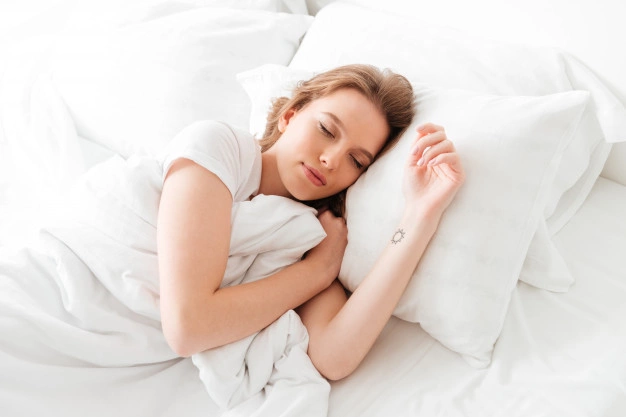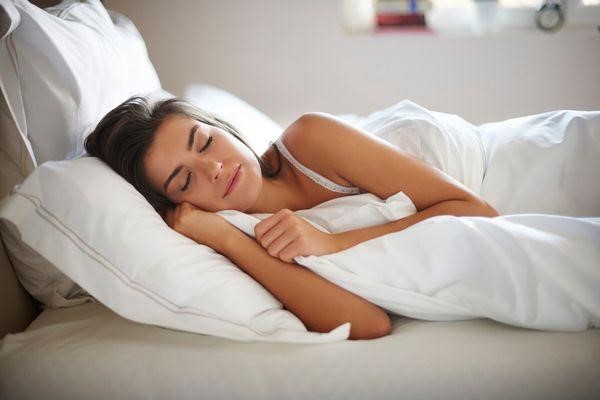
Splotchy skin, sunken eyes, lackluster hair… those sleepless nights have not only been taking a toll on our mental health but are now appearing on our faces too.
Estheticians and dermatologists alike say that the secret to staying young, healthy, and beautiful is getting quality and regular sleep. A good night’s sleep can also help cure several ailments, including those skull-splitting headaches and even moodiness.
In the current situation, with a virus on the loose, many people are finding it a lot harder to drift into sleep, while some are overcompensating for all those lost hours. Research highlights that children between the age of 6 and 13 should be getting around 9 to 11 hours of sleep every night, while teens between the ages of 14 and 17 should get 8 to 10 hours. Adults between the ages of 18 and 64 only require 7 to 9 hours of sleep, while the elderly (over 65) can get by with 7 to 8 hours of sleep.
If insomnia is not being kind to your body and your sleep schedule is all over the place, the following are 13 tips and tricks on how to effectively fall asleep easier and stay asleep for the entire night.
- Use your bed for sleep only. Avoid sleeping on other pieces of furniture.
- Exercising throughout the day and tiring out your body physically will help make sure you fall asleep faster and into a deeper, more relaxing sleep. However, avoid engaging in strenuous exercise for extended periods, especially too close to bedtime. Try to finish working out at least 2 hours before bed.
- According to med spa secret site Pambr, you should cut stimulants like sugar, caffeine, and nicotine at least four hours before you go to bed.
- Ensure the temperature of your room is about 64 to 68 degrees Fahrenheit (18 to 20 degrees Celsius). This is the ideal temperature for a good night’s sleep. Whenever you’re in doubt, ensure your room is on the chillier side.
- Change your pillows every 18 months or so and aim to wash them every six months or more. Pillow protectors might protect them to a certain degree and generate a barrier against sweat and other contaminants, but dust mites and mold may still be present in your pillows.
- Your pillow should provide ample neck and head support and help keep the spine aligned. No matter how comfortable the position might feel, avoid sleeping on your side with the shoulder underneath the pillow.
- For those that are easily affected by the environment, including noise and light, try using an eye mask and some quality, soft, earplugs.
- Change the mattress every seven years. An orthopedic mattress is the better choice over super hard, soft, or springy mattresses.
- If you want to add a plant to the décor of your bedroom, ensure that you adopt something like the cylindrical snake plant (Dracaena angolensis). The plant will soak up carbon dioxide all night while releasing fresh oxygen.
- The human mind likes to follow a routine, have one, and stick to it. Go to bed at the same time every day. Also try to wake up at the same hours, including on weekends and holidays.
- When everything else fails, try taking a cup of tea – passionflower or chamomile tea is most preferred.
- Consider doing a few spine-stretcher exercises before jumping to bed. Do some neck circles, do a bear hug, rest your feet up against a wall, and stretch your limbs in a child’s pose.
- Try applying some pressure on some acupuncture pressure points. Some good spots include the outer parts of the inner wrists, just below the pinky finger, the depression or indentation at the middle of the ball of your foot, near the arch; and the inner leg area above the ankle. Apply light to deep pressure for 40 to 60 seconds and see if it helps you relax.
Final Thoughts
Beauty sleep is an essential part of a healthy lifestyle. Not only does it help you look and feel refreshed, but it also supports your physical and mental well-being. In conclusion, getting enough quality sleep is essential for a healthy and glowing complexion. By implementing these tips, you can improve your beauty sleep and wake up feeling refreshed and radiant.











